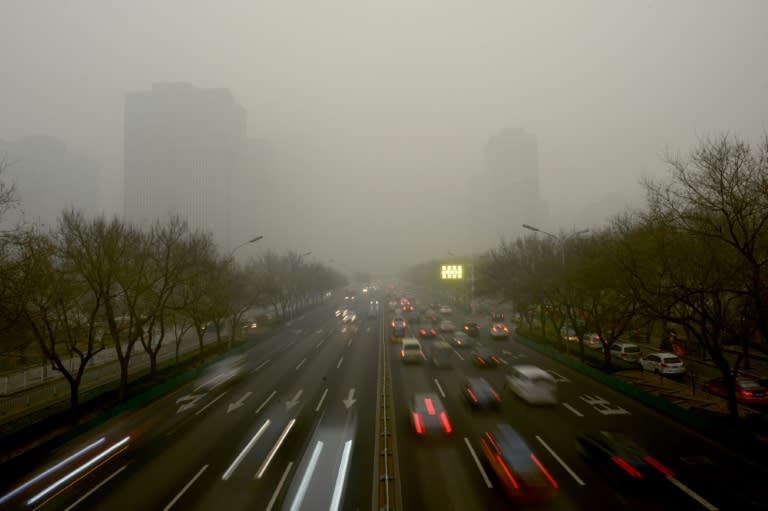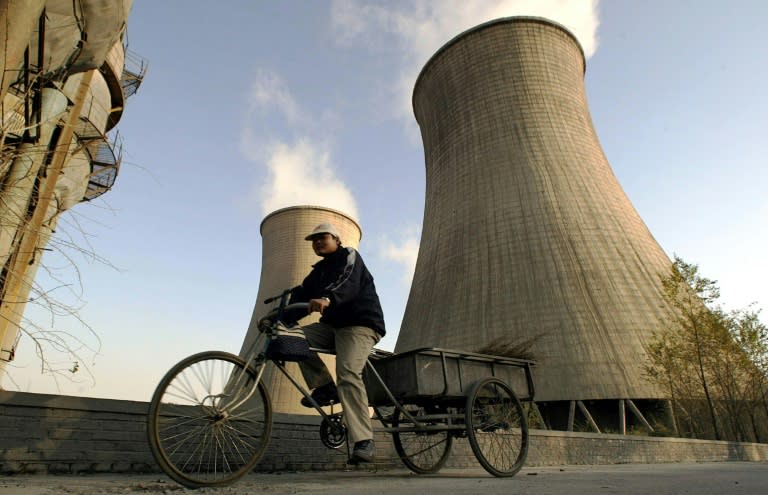Beijing factories shut amid smog nightmare
Beijing ordered hundreds of factories to shut and allowed children to skip school as choking smog reached over 25 times safe levels on Tuesday, casting a cloud over China's participation in Paris climate talks. A thick grey haze shrouded the capital with concentrations of PM 2.5, harmful microscopic particles that penetrate deep into the lungs, as high as 634 micrograms per cubic metre. The reading given by the US embassy dwarfs the maximum recommended by the World Health Organisation, which is just 25 micrograms per cubic metre Swathes of northern China were hit and levels in Jinan, a provincial capital hundreds of kilometres away, reached over 400. Authorities in Beijing ordered the closure of 2,100 highly polluting businesses, the state-run China Daily said, and advised citizens to stay indoors. The capital told primary and middle schools to stop outdoor activities and gave students permission to stay home, adding the city would provide online instruction, the official Xinhua news agency reported. Airlines cancelled over 30 flights from Beijing and Shanghai, many to highly polluted Shaanxi province which is a key coal producer. The smog nightmare came after Chinese President Xi Jinping vowed "action" on greenhouse emissions at the climate change summit in Paris. Most of the country's greenhouse gas emissions come from coal burning which spikes in winter along with demand for heating and is the main cause of smog. Xi repeated China's pledge that emissions would peak by "around 2030" but told the summit that poor nations should not have to sacrifice economic growth. China is estimated to have emitted nearly twice as much carbon dioxide as the United States in 2013, and around two and a half times the European Union's total. Even official news media joined in the criticism, with Xinhua posting on Twitter: "Breathless. Speechless." Twitter is blocked in mainland China, where pollution is a key cause of discontent with the ruling Communist party, and Chinese-language reports were more circumspect. Environmental group Greenpeace said in a statement the pollution showed the "weakness" of Beijing's air quality alert system. The city only issued an orange alert, the second highest on the four-colour scale. A red alert would require schools to close and ban half the city's cars from its streets. "The shocking levels of air pollution we have seen in the last few days are a serious danger to the health of hundreds of millions of citizens," Greenpeace said. The capital's "insufficient alerting system has compounded the problem", it added. One angry resident wrote on Chinese Twitter equivalent Sina Weibo: "I think they are concerned about the high costs of a red alert and the difficulties of implementing it."



